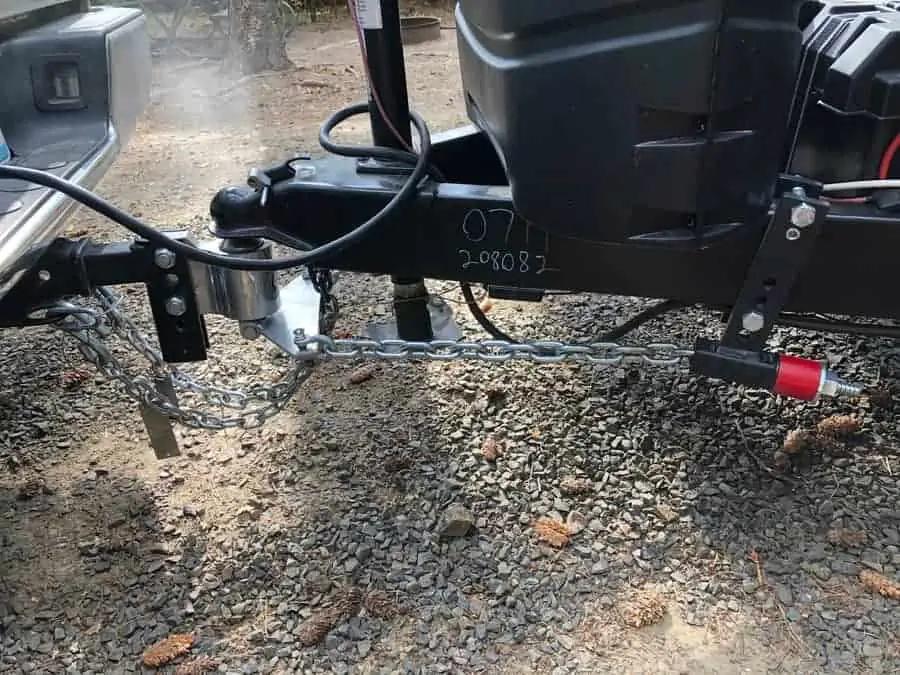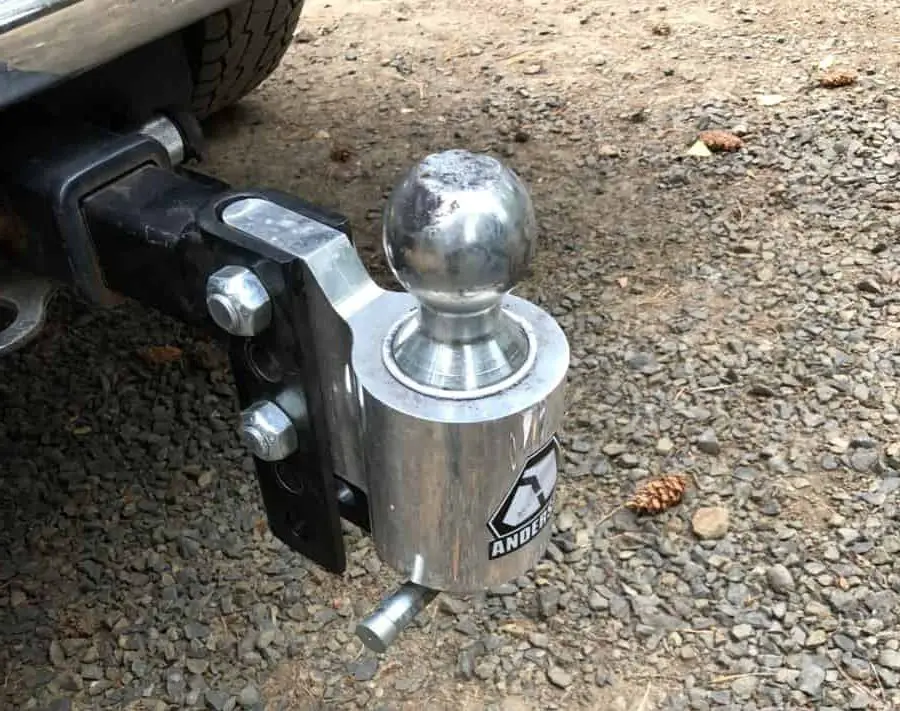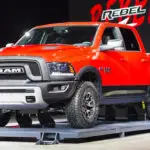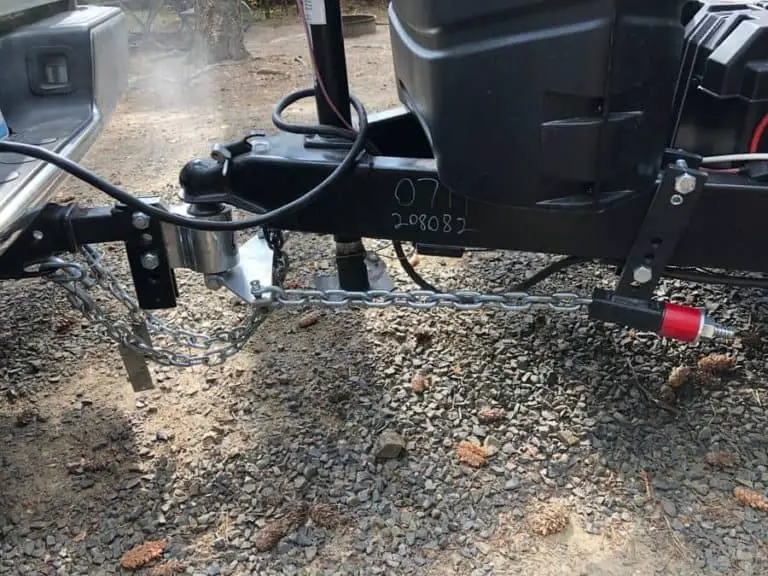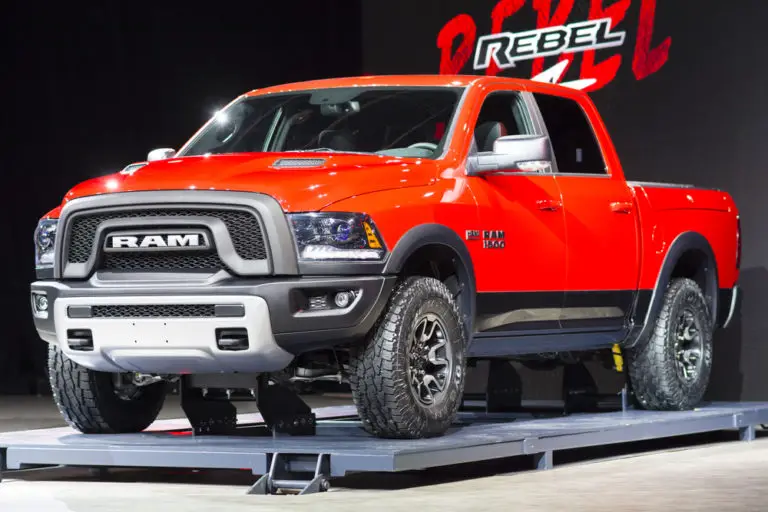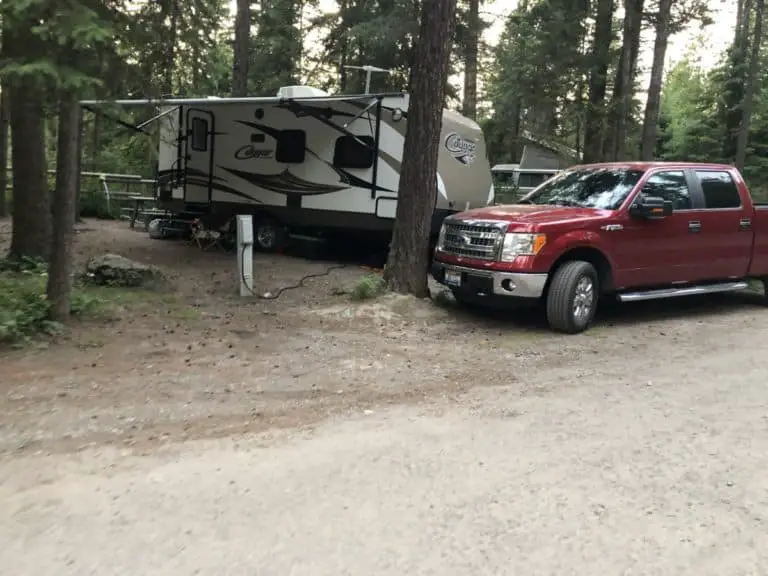Is a Weight Distribution Hitch Required by Law for a travel trailer or RV?
Weight distribution hitches are all the latest and greatest rage when it comes to towing. While weight distribution hitches have been around for, they’ve become extremely popular in the last decade or two. Weight distribution hitches are highly recommended by trucking and towing professionals. However, are they required by law?
While weight distribution hitches are a proven way to increase safety while towing, there aren’t currently any laws that require them. However, when towing a travel trailer or RV, your tow vehicle will have an increased tow capacity for a larger trailer if you use a weight distribution hitch.
While dealers and salespersons highly recommend weight distribution hitches, they typically won’t let a sale pass by simply because you don’t have one. However, that doesn’t mean they won’t strongly insist on you getting one. They may even sell you a weight distribution hitch with your truck or trailer as part of a package deal. If you’re still curious and want to know more about weight distribution hitches and the laws surrounding them, you’ve come to the right place.
Can I Tow a Travel Trailer Without a Weight Distribution Hitch?
As long as you have a hitch and a vehicle that it’s attached to, you can tow a trailer or RV. Weight distribution hitches aren’t the only kinds of hitches on the market and there are many instances when you can safely tow without one.
- Standard Ball Hitch
A standard ball or bumper hitch is the most common type of truck hitch. It’s also the most simple type of towing hitch. It attaches to the rear of your vehicle and is an effective method of towing. Standard ball hitches are great for towing small trailers and RVs that weigh less than half the weight of the towing vehicle. For heavy trailers and RVs, however, standard ball hitches won’t do the trick.
- Adjustable Ball Hitch
An adjustable ball hitch attaches to your vehicle in a similar fashion as a standard ball hitch. The difference between the two is that you can raise or lower an adjustable ball hitch, but you can’t adjust a standard ball hitch.
Most adjustable ball hitches are more heavy-duty than standard ball hitches and have more towing capacity. Some of them even have built-in sway control, but they don’t do anything in regards to weight distribution.
- Fifth-Wheel Hitch
Fifth-wheel hitches are some of the most heavy-duty on the market. Unlike ball or bumper hitches, fifth-wheel hitches don’t attach to the rear of your vehicle. Fifth-wheel hitches sit in the bed of your truck and gooseneck trailers and RVs attach to them. Fifth-wheel hitches are often more heavy-duty than bumper hitches and are capable of handling much more weight.
Fifth-wheel hitches also have built-in sway control and weight distribution capabilities. However, they will only work if you have a gooseneck trailer or RV, and aren’t compatible with trailer or bumper pull rigs.
Are Weight Distribution Hitches Required?
While weight distribution hitches are highly recommended in most situations, they’re not required. That is, unless, you are a towing professional who works for another company. In that case, the company you work for will likely require a weight distribution hitch no matter what you’re towing.
In your vehicles manual under the towing section, your vehicle may require you to use a weight distribution hitch to get the full towing capacity they advertise in the vehicles specs. Consult your towing guide for more information.
Insurance Purposes
Another reason that it’s good to have a weight distribution hitch is for insurance and liability purposes. For example, let’s say you’re towing a trailer or RV that weighs more than half the gross weight of your towing vehicle. Now, let’s say that you’re involved in an accident that was possibly caused by excessive swaying or improper towing. Finally, let’s say that you weren’t using a weight distribution hitch at the time of the accident.
Insurance companies will dig into the details of the accident. If they find that you weren’t using a weight distribution hitch even though one was recommended based on your towing situation, there’s a chance they won’t cover the damages. They can do this if they can prove you were being unsafe or weren’t following recommended towing methods at the time of the accident.
If your accident involved another vehicle, there’s also a chance you will be held liable for any physical or vehicular damage that occurred as a result of the accident. It’s not to say that the accident happened simply because you didn’t have a weight distribution hitch. However, if there’s any chance that the lack of a weight distribution hitch had an impact, you may be facing liability and criminal charges.
So, if you don’t want to get involved in an insurance nightmare, cover your butt with a weight distribution hitch.
Do You Need a Weight Distribution Hitch on a 2500?
Regardless of the size of your truck, weight distribution hitches are always recommended. Here’s the golden rule for WDHs.
If the weight of your trailer is more than half the gross weight of your towing vehicle, you should have a weight distribution hitches. On average, most 2500 ¾ ton trucks have a gross vehicle weight rating of between 10,000 and 11,000 pounds. So, if the trailer or RV that you’re towing weighs more than 5,000 or 5,500 pounds, you should use a weight distribution hitch with your 2500.
Be the first to be notified about FREE tips, hints, coupon codes, and email-exclusive information. All for FREE!

